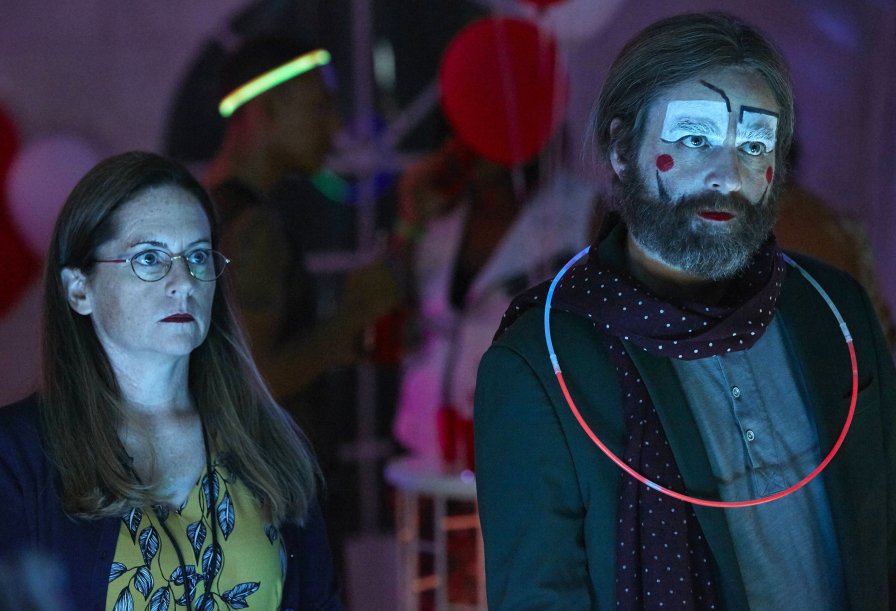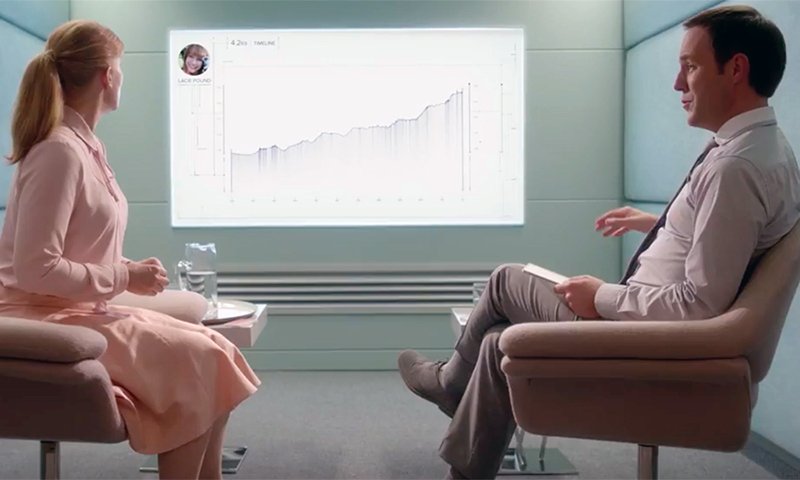Welcome to Screen Week! Join us as we explore the films, TV shows, and video games that kept us staring at screens. More from this series
10
Baskets
Created by: Louis C.K., Zach Galifianakis & Jonathan Krisel
[FX]

For absurdist half-hour serio-comedies, the combination of C.K., Galifianakis, and “Tim & Eric” collaborator Krisel seemed too perfect a creative talent storm. The post-Golden Age TV connoisseur’s internet-honed backlash raised legitimate questions. Will it actually be LOL funny or another occasionally-we-can-smirk-at-this character drama? Can Galifianakis overcome his post-Hangover hangover when he’s not flanked by potted plants? Will it be too weird or not weird enough? How much was C.K. really involved considering he’s got, you know, his own signature show and an ambitious self-distributed digital series? And, wait, does it matter that it’s on FX and not FXX!? In the end, Baskets answered most of these questions. Amid all the talk about gender identity, Louie Anderson’s simple human portrayal of Ma Baskets traded the easy laughs that defined cross-gender comedic performance into a complex portrayal of life’s disappointments and idiosyncrasies that defined the show. Just as vital was Martha Kelly’s Martha, a painfully acute portrayal of normalcy. Plus, the show’s Bakersfield setting was a nice reminder that there’s a whole lotta country outside of L.A. and New York.
09
Black Mirror
Charlie Brooker
[Netflix]

While smooth for the most part, Black Mirror’s transition from its first two seasons — as a BBC-produced darling, into its third as a bingeable Netflix product — wasn’t without a few dings. Still easily one of the most exciting, original, and oftentimes intoxicating series out there, Black Mirror’s third season seemed to push more into the grotesque, overinvesting in fx-shock tactics at the loss of more subtly moody, twisted narratives. But the stakes were incredibly high: the great ambition of Black Mirror is that, as an anthological series, it must create a new reality for every episode, one where a single aspect of technology (whether already in existence or speculative) wreaks havoc on society. All considered, 2016’s Season 3 (to be followed up by another season this year, also on Netflix) is still superb social-technological commentary, expertly crafted to make you gasp, scream, or cry (sometimes even, I swear, laugh). And not all six episodes are entirely doom and gloom — “San Junipero,” while melancholic and tragic in its own right, is an enlivening tale of second chances via a virtual, paradisiacal purgatory. Black Mirror is science fiction that matters, not because of the near-futures it imagines, but because it so eerily resembles our present — and it may be too late to go back.
08
The Night Of
Created by: Richard Price & Steve Zaillian
[HBO]

In a lot of ways, this eight-part miniseries was just another crime drama, with suspense around the guilt/innocence of a suspect and the colorful bureaucratic and emotional rigors of those involved with the case. Replace John Turturro’s foot problem with constant nips from a Pepto bottle or noisy nose blowings and he’s pretty boiler plate. Jeannie Berlin’s tough, cynical prosecutor with the itchy conscience is also familiar. Yet what both actors brought to their roles was everything. Everybody in this somber, sordid tale crackled with life. Bill Camp wasn’t just the retiring-cop-with-the-lingering-doubt guy, but a real thinking person with no bluster or platitudes to sort him for the viewer. Riz Ahmed played the ostensible innocent without conveying saintliness. His countenance was ever brave, yet pulsed with heartbreaking fragility (that rare thing of a tempered star-making turn). The masterpiece that was Deadwood was simple and ornate, but assailed with an unparalleled cast and dialogue, roundly revitalizing its quaint, place-holding tropes. What Deadwood did for the western The Night of managed to do for the impossibly, unflaggingly ubiquitous crime procedural — proving that sustenance, if applied carefully, can still stick to our towering, immovable genre bulwarks.
07
Silicon Valley
Created by: Mike Judge, John Altschuler & Dave Krinsky
[HBO]

A luau at Alcatraz, a fight with a robotic deer that just got run over, Dinesh’s gold chain. These are just a few examples of some great instances of comedy in the third season of Silicon Valley. There is one moment that always springs to mind first, however, when I contemplate this season of the show: In the second episode, Richard Hendricks (Thomas Middleditch), our hero, confronts his new boss, Jack Barker (Stephen Tobolowsky), at his horse farm. Barker is there to oversee the breeding between two horses. The scene is hilarious in how incredibly uncomfortable it is, due in large part to the fact that while the two characters try to have a serious conversation about the future of their company, graphic horse sex is going on behind them. Now, a few years ago, I never anticipated that this show would be the thing that exposed me to what an erect horse penis looks like. In some ways though, it makes perfect sense. Silicon Valley is often at its best when it is at its most ridiculous, and what better way to satirize an actually ridiculous place like Silicon Valley than to ratchet up the absurdity as high as standards and practices will let you take it. If that’s not comedy, then what is?
06
Stranger Things
Created by: The Duffer Brothers
[Netflix]

How do you really define a decade in pop culture? How is it possible to fathom and re-portray what was popular, what was cool, and what still holds resonance beyond the swarm of “what influenced me most as a kid” lists on Facebook? It’s tricky to say, other than through tackling personal experiences, news articles, and “historic” events, and by making your way through the necessary “relevant” album and film post-mortems. But at least that allows you to stumble upon a supposed aesthetic that crystalizes tendencies that fell across the span of a short few years, and The Duffer Brothers’ wiley and measured encapsulation of an estranged 1980s parallel perfectly suited the story that they were keen to tell. This was a tale of family, of trust, of dependence, and of a secret society, and within that stylized chrysalis, Stranger Things documented more than just an arrangement of disjointed family relationships (which Winona Ryder brought to the fore in her character, Joyce). It also brought a sense of curiosity that existed before the digital revolution. Sure, these episodes were haunting, daunting, and riddled with suspense, but they also tackled broader topics while taking optimum care in their exploration of a 10-year span that has been glorified, vilified, and despised from the very moment it came to a close.
Welcome to Screen Week! Join us as we explore the films, TV shows, and video games that kept us staring at screens. More from this series
